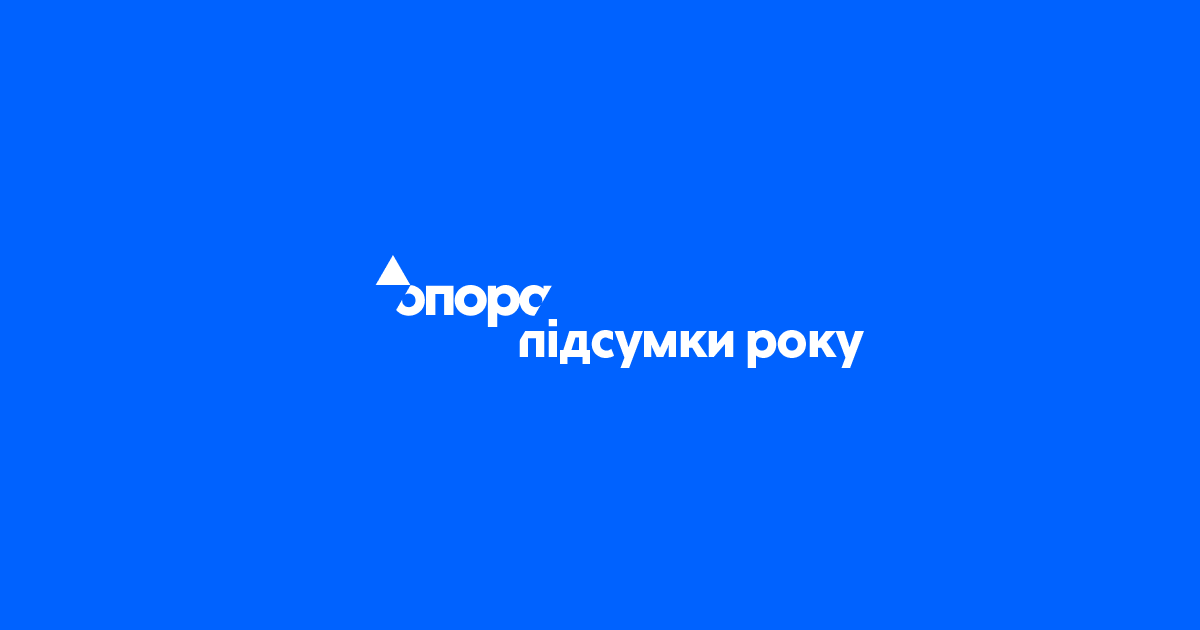Another year is getting to a close. It’s the second year of the full-scale Russian invasion and the tenth year of the russia’s war in Ukraine. A year of hard work, huge effort, and immense resilience and indomitability. We are most grateful to the Armed Forces of Ukraine who have made this year possible for us. We especially appreciate our colleagues who defend democratic values with the arms in their hands.
Our priorities are steadfast. It is PARTICIPATION, SECURITY, and JUSTICE. They are deeply embedded into OPORA’s each and every activity, from the usual election observation and improvement of electoral law to documenting war crimes and monitoring migration processes.
OLD NEW US
We Act On the Good Side
OPORA has 17 years of experience and expertise in elections, civil observation, and legal reform. On top of that, we have built some tangible experience in international humanitarian law and concept design for the resumption of the civilian governance system for the post-war time.
Today, we have tackled new focus areas:
- reform of political institutions;
- preparation for the first post-war elections;
- security and sustainable peace;
- global advocacy for Ukraine’s interests;
- establishment of the Special Tribunal on the Crime of Aggression and documenting Russia’s war crimes;
- impact analysis of russia’s influence on political processes in Ukraine;
- exploration into Russian disinformation;
- challenges for the development of communities, transition of government to the civilian system in the post-war time;
- studying and forecasting migration patterns;
- new quality levels for processing and analyzing data and OSINT.
By extending the scope of our competencies in the wake of russia’s full-scale invasion, we felt we needed to transform on the outside. That is why this September, we updated our usual triangle shape and colors in the logo and added more fresh and relevant elements to make sure they are timeless. A key objective of our rebranding was to highlight the expertise and experience built over the many years of our activities. We intended to show the integration into the country’s present life and deep insight into today’s processes. We are changing according to the needs of the time. However, we are uncompromising in working in Ukraine and for Ukraine’s sake.
The Power of Choice
This year, we launched a series of videos The Power of Choice. Important Talks About Ukraine. It is a series of visionary interviews with Ukrainian intellectuals for anyone willing to better understand the world and the uniqueness of Ukrainian people in it. We are talking about choice in broad terms. It is about aspects accompanying us every day and making us distinct.
Olha Aivazovska is the project’s host. We invite experts from various areas of humanities to have a conversation. In total, we managed to produce about two dozen of talks: with Pavlo Klimkin, Larysa Denysenko, Volodymyr Yermolenko, Anton Drobovych, Valeriy Pekar, Vadym Karpyak, Vakhtang Kebuladze, Hanna Novosad, Tamila Tasheva, Peter Erben, Petro Burkovskyi, Oleh Pokalchuk, Oleksandra Koltsova, Olesia Ostrovska-Liuta, Olena Kondratiuk, and Alyona Hetmanchuk.
The scripts of the talks were published by our media partners, and all videos are available on our YouTube channel. Moreover, a video interview with Pavlo Klimkin from the series has become a hit this year: it had over 36,000 views.
Social Media and Partnerships
This year, our YouTube channel OPORA Speaks exceeded 7,000 followers. Over the year, we released 119 videos that attracted over 643,000 views, with a total of 26,700 hours. OPORA’s Facebook page is followed by over 43,000 subscribers, and the posts have had about 700,000 views. Our Instagram account now has over 3,000 followers, and the posts reached over 310,000 views. The number of our followers on X (Twitter) is now almost 10,000.
This year, we closed the door on Telegram as the communications platform. The messenger’s highly probable links with Russian special services and oligarchs make much more difference to us than the benefits from its convenience.
2023 yielded many new media partnerships. Our pieces were published on such platforms as Ukrayinska Pravda, LB.ua, Censor, Mirror Weekly, Liga.net, Ukraїner, and Svidomi.
We are also grateful to our partners for co-organization of events and other forms of cooperation: to the Central Election Commission, to the Committee of the Verkhovna Rada of Ukraine on the Organization of State Power, Local Self-Governance, Regional Development, and Urban Planning, to the National Agency on the Prevention of Corruption, to the International Foundation for Electoral Systems in Ukraine (IFES), to the National Democratic Institute in Ukraine (NDI), to the European Platform for Democratic Elections (EPDE), to the Global Network of Domestic Election Monitors (GNDEM), to the International Center for Ukrainian Victory (ICUV), to the Ilko Kucheriv Democratic Initiatives Foundation, to the Laboratory of Legislative Initiatives, the Center for Political and Legal Reform, Starlight Media, USAID, NED, International Renaissance Foundation, to the EU Delegation in Ukraine, to the UK Government, and OPORA in Poland.
WAR
Center for Documentation in Warsaw
Autumn brought a one-year mark for the operations of the Center for Assistance in War Crimes Documentation administered through OPORA in Poland Fund and established in Warsaw by our networks’ members. It is a safe place where Ukrainian people who have witnessed or survived war crimes may share their stories to make sure that international courts can prosecute the perpetrators in the future.
From September 2022 to late autumn 2023, the Center’s lawyers and psychologists collected almost 1,500 preliminary interviews. Initially, they interviewed Ukrainian people in Warsaw shelters, and then in autumn 2023, they expanded the geography to other Polish cities such as Lodz, Torun, Bydgoszcz, Bialystok, Augustow, and Malbork. Lawyers and psychologists always work together to prevent the re-traumatization of survivors. Moreover, the Center’s experts follow the methodology for NGOs designed by the Eurojust, the Genocide Network, and the Office of the Prosecutor of the International Criminal Court.
All the collected preliminary interviews are translated into Polish and officially forwarded to the Polish prosecutor’s office as it is the authority with a mandate to properly interrogate witnesses on Poland’s territory. The Center cooperates with the Office of the Prosecutor General of Ukraine and the Prosecutor’s Office of Poland, with the prosecutors of the International Center for the Prosecution of the Crime of Aggression against Ukraine (ICPA), and the UK Government. The Center keeps evolving, and its operations have achieved a sustainable format, as continuously reported by OPORA experts on Ukrainian and international platforms.
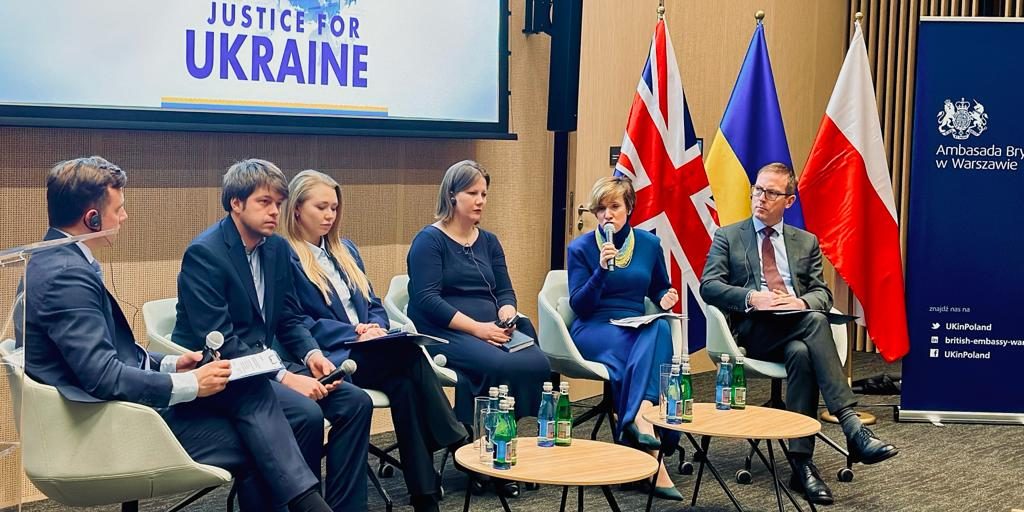
Sustainable Peace Manifesto
This year, the Sustainable Peace Manifesto. The World After Our Victory was finalized and presented on national and international levels. The document was drafted by the members of Ukrainian civil society. It outlines the answers to questions about what Ukrainian victory means, how to achieve it, and how to ensure sustainable peace.
OPORA representatives co-authored the Manifesto, and also administered the work of the creative group of experts contributing to the document. Thus, over a year, we have had presentations of the Manifesto in 13 regions of the country, whereas some national media published dedicated columns from its authors.
Analysis of Russian Narratives
OPORA experts continue to track the hate speech and analyze the developments, statements, and decisions on RF territory directly impacting the war in Ukraine. The structural monitoring resulted into analytical pieces in the sections War Speeches and The Occupied.
A huge part of our work is to analyze posts on social media and in messengers. Whereas previously OPORA experts tracked the political ads and the costs entailed, now they use their skills of processing big data to produce think pieces revealing disinformation schemes against Ukraine.
Our research into the views of the Russian “opposition” caught much attention among experts (the rhetoric of the Antiwar Committee of Russia and the Free Russia Forum, and also from the Navalny team about the end of war) and the piece about the dissemination of russian disinformation narratives in the West through digital platforms.
STUDIES
Over a decade of the Russian war in Ukraine, and especially after February, 24, 2022, the demographics of Ukrainian communities has changed. To be able to efficiently rebuild cities and villages, to make public policies, to plan the first post-war elections, etc. we need to understand where precisely Ukrainian people live, how they move around Ukraine and beyond, how the shelling affects migration processes, wherefrom Ukrainians consume the information, what the information field is in the temporarily occupied territories, what public attitudes are about the war, future elections, dialogue building, and many other things. To find the answers to all those questions, OPORA experts designed questionnaires for opinion polls, collected data from public authorities and interstate entities, and even cooperated with mobile operators.
Migration
During the year, we collected data about migration of the population and compared the information from different sources. Thus, according to the MFA, as of February, 8 mln Ukrainian people were staying out of the country. In July, the number grew by almost 200,000 people, and exceeded 8 mln. According to the Ukrainian border service, ab. 40,000 Ukrainian citizens a month are leaving the country with no return. According to the UN, the numbers are even higher, above 200,000. Among other things, mass shelling of critical infrastructure is a critical factor.
Media Consumption
Since Ukrainian people are now scattered because of the war, it is vital to choose the proper communication channels. We explored the media consumption and social and political attitudes of Ukrainian people in Ukraine, Poland, and 7 other major host countries.
Moreover, we examined the attitudes of Ukrainians to people who stayed in the temporarily occupied territories, and also to the information field in the TOTs. As part of the joint effort in the International Center for Ukrainian Victory (ICUV), OPORA experts studied the attitudes of Ukrainian people to the war and the prosecution of russia’s war crimes.
Life In Ukrainian Communities
Security is a key factor for returning people and overcoming the consequences of hostilities. However, it will only work in combination with all infrastructure processes, from utility services to education and health care, and also provided no citizen is excluded.
Today, OPORA experts work in several communities, rather remote from the front line, to track the trends in the resumption of life and to explore the social demand of local people and new active residents displaced to live in the community. Thus, we collected data and analyzed the security situation, health care, education, and social and political attitudes of residents in the communities of Ivano-Frankivsk, Lviv, Rivne, and Bohuslav (Kyiv region).
MONITORING, ANALYSIS, AND LAWMAKING
We have traditionally pursued our usual tracks, such as monitoring and analysis. It covers the performance of public authorities, social processes, and legislative documents, nationally and internationally, in the context of global impact on Ukraine. In particular, in August, it had been 4 years since the current convocation of parliament in office. In December, our country was granted the green light to open the EU accession negotiations. OPORA analysts also cover the political contexts of all those processes in their publications.
OPORA lawyers continue to improve the law in many areas, from the preparation of the first post-war elections to the functioning of NGOs, in the context of their advocacy and how to distinguish it from political lobbying. In addition, lawyers contributed to the development of the law to bring back the mandatory reporting of parties and the control of the financial statements by the NAPC, to enhance the liability for the violation of the rules of political finance and to regulate political campaigning.
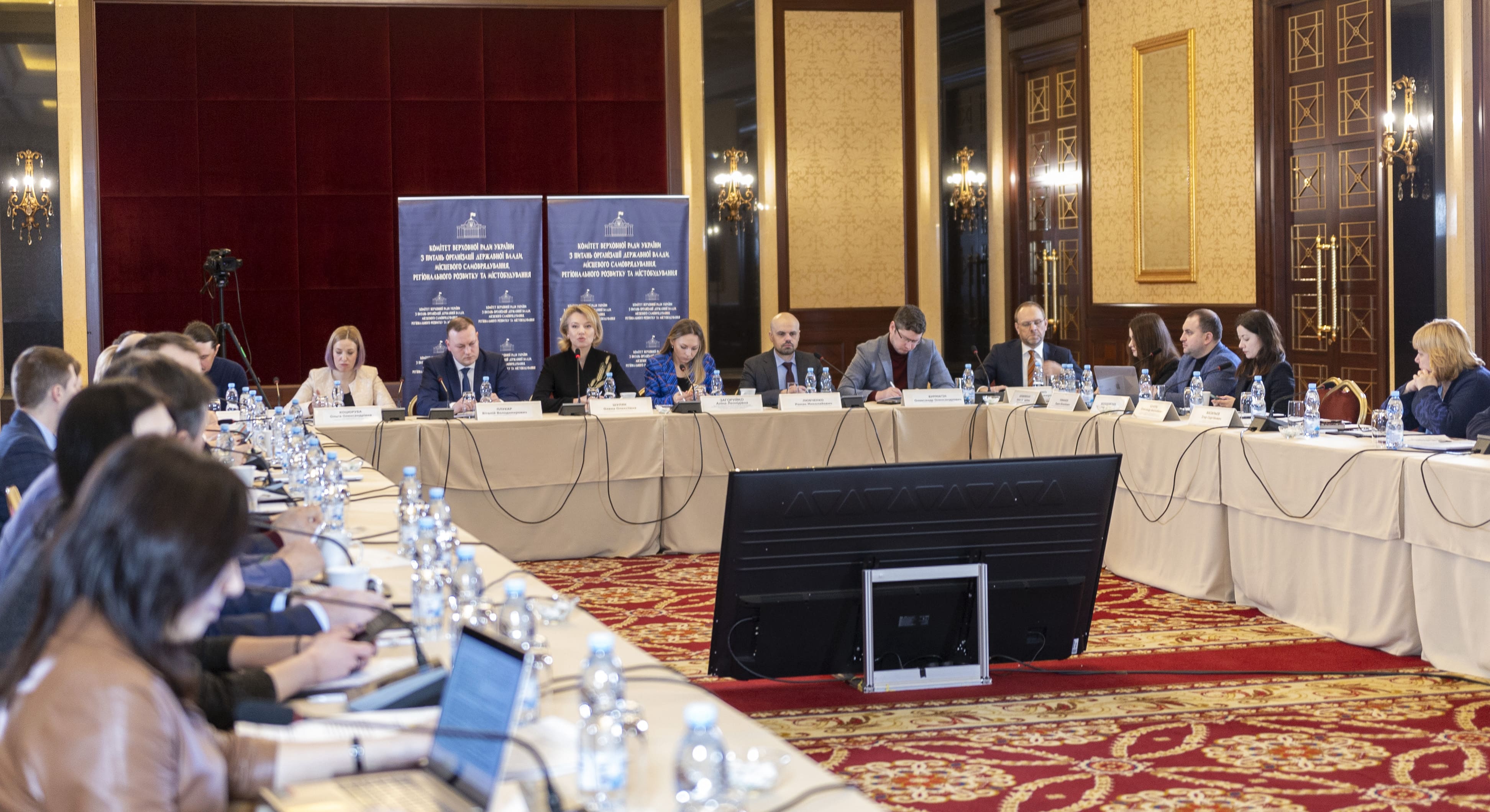
Our lawyers participated in three working groups initiated by the Central Election Commission. They developed the mechanisms of data updates in the State Voter Register; drafted proposals on the organization of out-of-country voting; and contributed to the plan for the preparation and conduct of post-war elections.
Furthermore, there was a working group on the reform of electoral law for the first post-war elections that included representatives of dedicated NGOs (in addition to OPORA, there are also other partners such as the CPLR, IFES, a.o.). The White Book is underway to include legislative amendments for the first post-war elections.
ELECTIONS
No elections are possible during the war — it is the position supported by OPORA, relying on the many years of our experience and on international standards. Thus, when the Ukrainian political domain started having active discussions about the forthcoming election process, OPORA collected signatures from over 100 NGOs supporting the opinion that war is not the best time to have elections. However, whenever the war ends, the first post-war elections will pose many challenges to Ukraine. That is why we need to start preparing now.
In cooperation with the dedicated parliamentary committee and partners, OPORA organized public discussions to develop a single position of civil society about the first post-war elections, and presented its vision of key legislative changes to be able to have them.
Security is, by all means, the most important component. That is why OPORA experts developed a questionnaire, criteria, and assessment methodology for security audits of communities to make sure they can determine the level of their readiness to organize the election process. In addition, we suggested several models with different public authorities to make decisions about whether to conduct elections.
Another challenge will come from the out-of-country voting, regarding the mass migration processes. Therefore, OPORA experts conducted the survey, and explored potential issues. We experimented in search of optimal solutions. We launched the post-crossing with Ukrainians in other countries to test how mail voting could work for out-of-country voters, in the event it is accepted in Ukraine.
Another challenge is related to the work of police during elections, especially abroad. Since OPORA has been consistently training Ukrainian police officers about documenting electoral fraud to make sure cases end up in court, we have already launched the effort to train the police for the postwar elections. Currently, we designed an online training course and a mobile app for policemen. When the electoral law is upgraded, the data in the course and in the app will update, too. As soon as the first post-war elections are announced, police officers will receive access to those information products.
Also, at the Yaroslav Mudryi National Law University in Kharkiv, we opened the simulation polling station, where future police officers could practice the documentation of electoral violations. We had previously opened similar simulation classrooms in Lviv and Mariupol (the latter was destroyed during the full-scale Russian invasion).
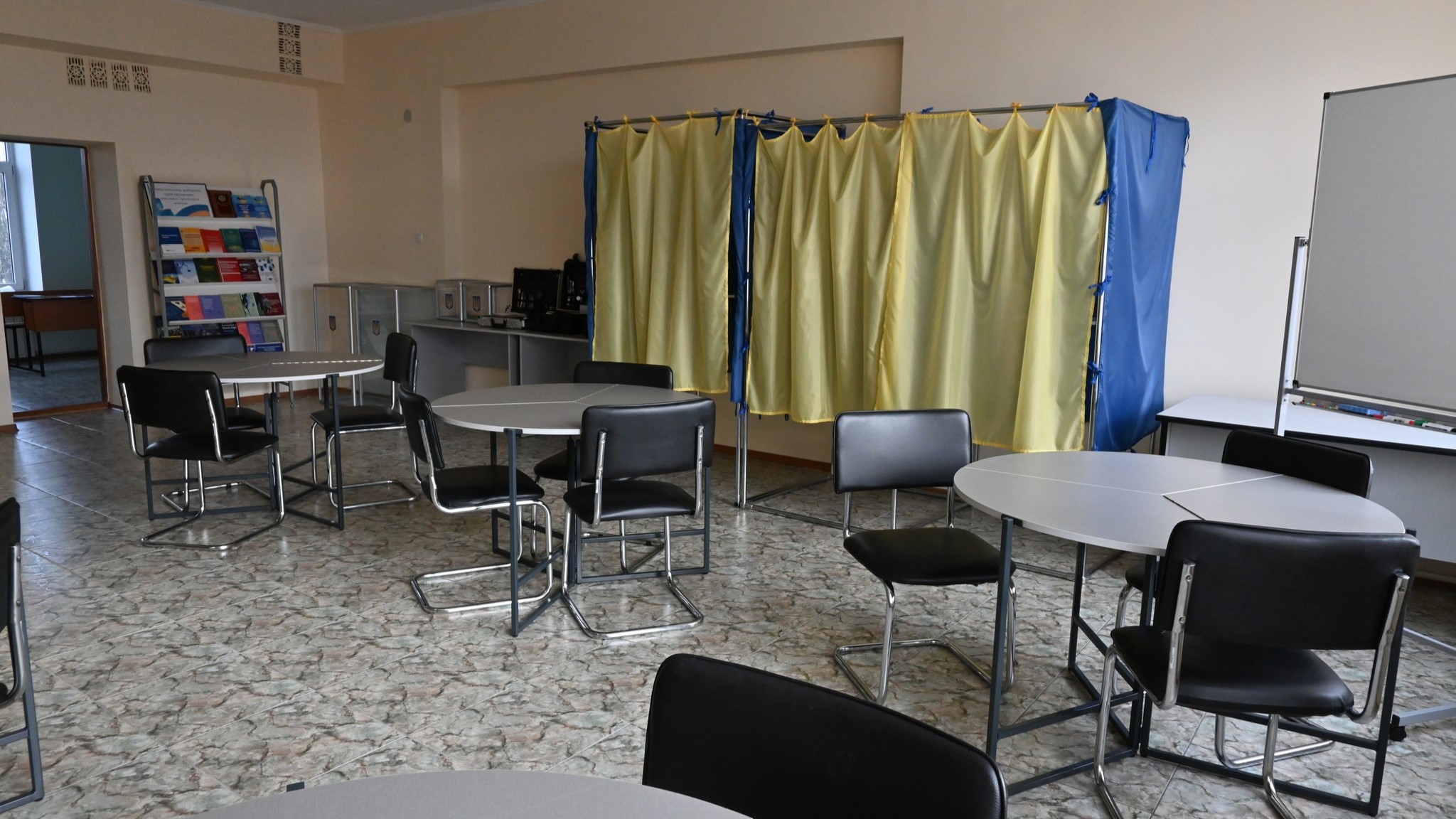
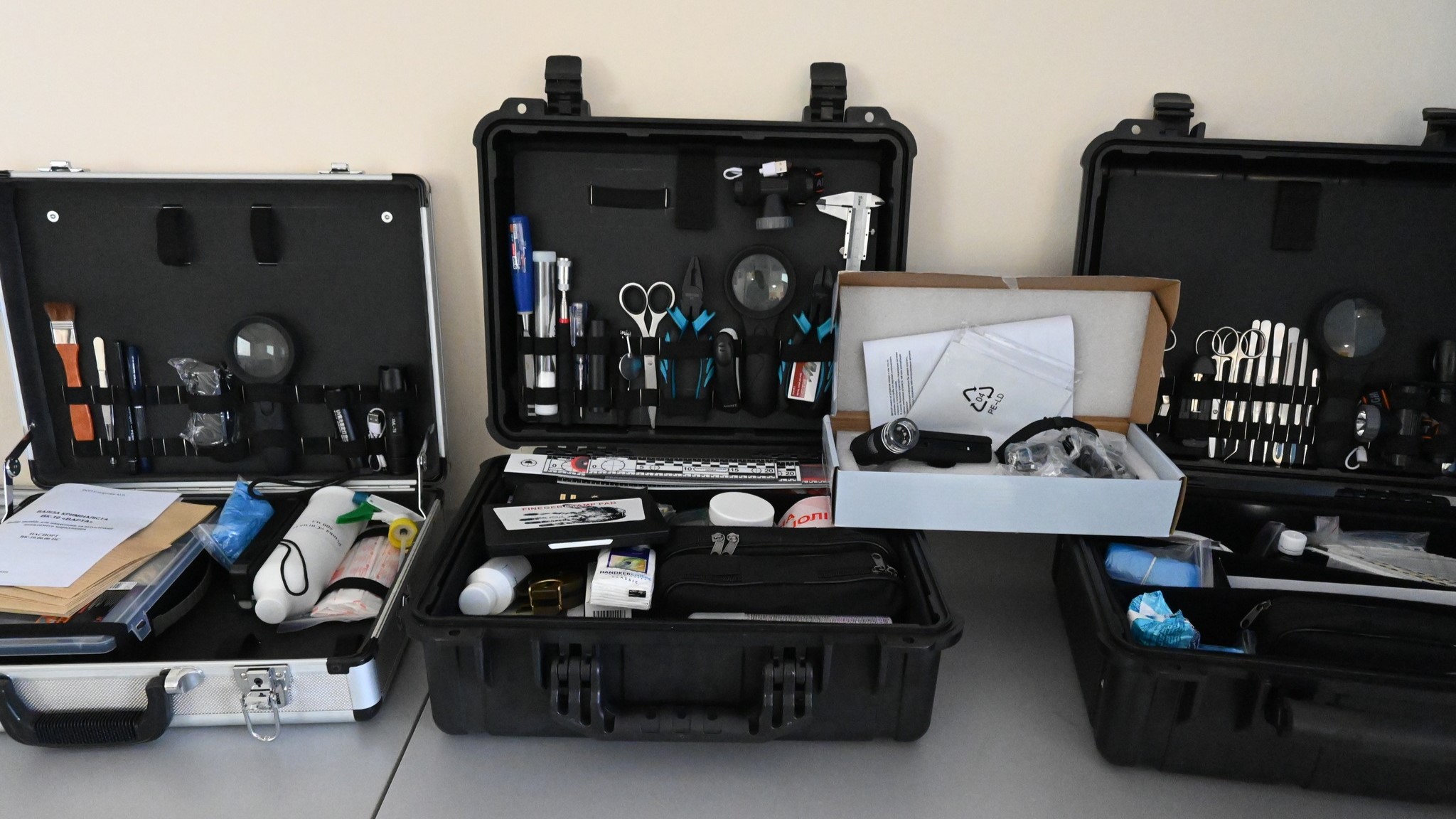
GLOBAL PROCESSES
The issue of non-conducting elections in Ukraine during the war is relevant internally for national politicians and for external circles, alike. We explained our position to international partners at events in the USA, Brussels, Warsaw, the European Parliament, and PACE, as well as in the global media.
Meanwhile, when elections were not yet possible in Ukraine, OPORA representatives joined international observation missions in other countries, such asTürkiye, Kazakhstan, Nigeria, Armenia, and Poland. We also contributed to the launch of the Global Network for Securing Electoral Integrity (GNSEI).
